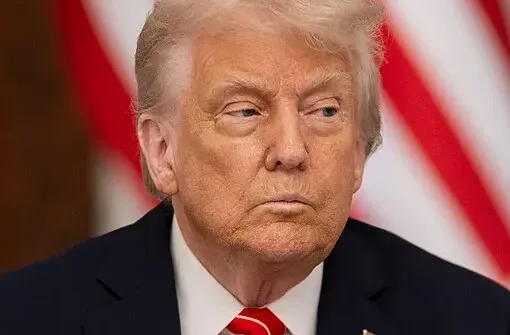Phone call amid explosions: Qatar rejects Trump’s claim it was warned before devastating strike
On 9 September 2025, shockwaves coursed through Doha as Israeli missiles tore into a residential enclave where Hamas negotiators had gathered during US-brokered peace efforts. The attack left plumes of smoke rising over the Qatari capital, killing five Hamas members and a Qatari security officer, while its political aftershocks reverberated across world capitals.
The White House reacted within hours. Press Secretary Karoline Leavitt said President Donald Trump had directed his envoy, Steve Witkoff, to warn Qatari officials before the strike. She described the attack as counterproductive, insisting that bombing inside the territory of a close ally undermined both Israeli and American goals. Trump later echoed her remarks, expressing regret over the “location of the attack” and blaming Israeli Prime Minister Benjamin Netanyahu for acting independently.
Qatar immediately rejected the claim that it had been warned. Foreign Ministry spokesperson Majed al-Ansari declared that the only call from an American official came during the explosions. Foreign Minister Sheikh Mohammed bin Abdulrahman al-Thani branded the strike “state terrorism” and confirmed that the US call arrived ten minutes after the assault had already begun.
Hamas said five members were killed but confirmed its lead negotiators survived. The group accused Israel of deliberately sabotaging peace efforts and condemned the US for bearing “joint responsibility” through its continued support of Israel.
In Doha, the Amiri Diwan condemned the strike as a gross violation of sovereignty and international law. Emir Sheikh Tamim bin Hamad Al Thani warned the attack endangered regional stability and vowed Qatar would take “all necessary measures” to protect its security. Despite the shock, Qatar signalled it would continue its mediating role in ceasefire talks.
Trump attempted damage control by personally phoning the Emir. He promised the incident would not be repeated and said he believed the tragedy could still open “an opportunity for peace.” His words, however, rang hollow for many in the region.
Analysts warned of a deep rupture in trust. Khalil Jahshan of the Arab Centre Washington DC argued that Washington’s credibility had been severely eroded, noting that Qatar’s designation as a “major non-NATO ally” now seemed worthless. Former US diplomat Nabeel Khoury expressed disbelief that Israel would strike in the heart of Doha, just kilometres from Al Udeid Air Base, the largest US military installation in the Middle East. He warned the raid would “chill diplomacy” and make it harder for Arab states to engage in US-led negotiations.
International condemnation was swift. Britain, France, the European Union, Saudi Arabia, Egypt and the United Arab Emirates all denounced the strike as reckless and destabilising. UK Prime Minister Keir Starmer condemned the bombing outright, calling it a violation of international law and insisting Britain had no prior knowledge.
The incident underscored Israel’s willingness to act beyond its borders, regardless of the diplomatic cost. For many observers, it confirmed suspicions that Israel has no interest in reaching a ceasefire deal and is actively undermining negotiations.
Qatar, long praised for hosting Hamas offices at the request of the United States and for brokering past truces, now finds itself a direct target in a war it sought to end. The smoke still lingering over Doha symbolises not only the destruction of one neighbourhood, but also the collapse of trust in a fragile network of alliances.
As residents counted the dead and the world weighed its response, the strike left one question hanging: if even Washington’s closest Gulf ally could be bombed without consequence, who might be next?
